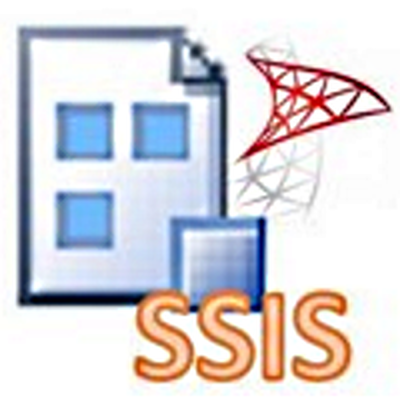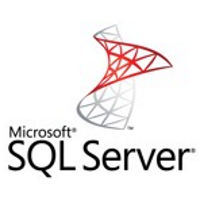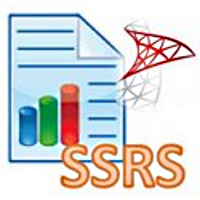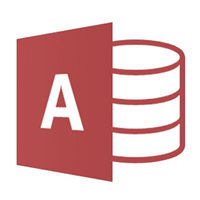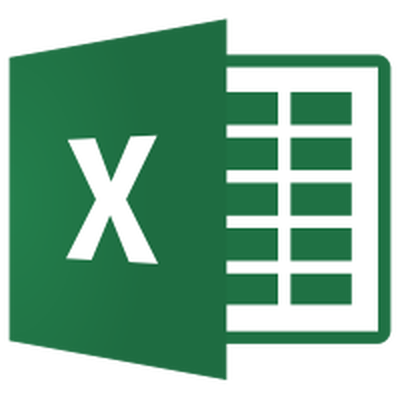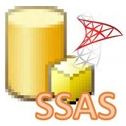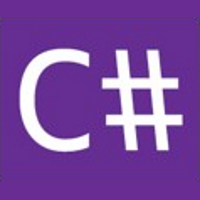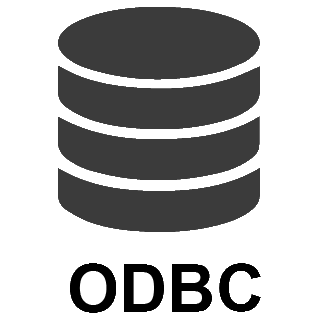Azure DevOps Connector
The high-performance Azure DevOps Connector provides read/write capabilities within your application, allowing you to perform numerous Azure DevOps operations with minimal coding or even no-coding at all. Integrate Azure DevOps data into applications such as SSIS, SQL Server, any ODBC-compatible application, or even directly within a programming language using this connector.
Download for SSIS Download for SQL Server and ODBC Documentation
Integrate Azure DevOps with these applications
Actions supported by Azure DevOps Connector
Azure DevOps Connector supports following actions for REST API integration:
Create Project
Description
Create a new project within the organization.
Parameters
You can provide the following parameters to this action:
-
Project Name -
Project Abbreviation -
Project Description -
Source Control Type -
Template Type Id -
Visibility
Input Fields
You can provide the following fields to this action:
-
N/A
Output Fields
The following fields are returned after calling this action:
-
Id -
PluginId -
Status -
Url
Visit documentation for more information.
Create Team
Description
Creates a new team in the default project within the organization.
Parameters
You can provide the following parameters to this action:
-
Team Name -
Team Description
Input Fields
You can provide the following fields to this action:
-
Name -
Description
Output Fields
The following fields are returned after calling this action:
-
Id -
PluginId -
Status -
Url
Visit documentation for more information.
Create Work Item
Description
Creates a new work item in the default project within the organization.
Parameters
You can provide the following parameters to this action:
-
Project Name -
WorkItemType -
ByPassRules
Input Fields
You can provide the following fields to this action:
-
WorkItemType -
Title -
Description -
State -
History -
Tags -
Revision -
AreaPath -
TeamProject -
IterationPath -
Reason -
AssignedTo -
Priority -
Triage -
StackRank -
Blocked -
TaskType -
RequiresReview -
RequiresTest -
ActivatedDate -
ActivatedBy -
ClosedDate -
ClosedBy -
ResolvedDate -
ResolvedReason -
IntegrationBuild -
FoundIn -
OriginalEstimate -
RemainingWork -
CompletedWork -
Size -
Effort -
TargetDate -
StartDate -
FinishDate -
DueDate -
StoryPoints -
Discipline -
SystemInfo -
Steps -
ReproSteps -
[Dynamic Column]
Output Fields
The following fields are returned after calling this action:
-
Id -
Title -
Description -
WorkItemType -
State -
Url -
Tags -
Revision -
AreaPath -
TeamProject -
IterationPath -
Reason -
CreatedDate -
ChangedDate -
CommentCount -
AssignedToDisplayName -
AssignedToUrl -
AssignedToLinksAvatarHref -
AssignedToId -
AssignedToUniqueName -
AssignedToImageUrl -
AssignedToDescriptor -
CreatedByDisplayName -
CreatedByUrl -
CreatedByLinksAvatarHref -
CreatedById -
CreatedByUniqueName -
CreatedByImageUrl -
CreatedByDescriptor -
ChangedByDisplayName -
ChangedByUrl -
ChangedByLinksAvatarHref -
ChangedById -
ChangedByUniqueName -
ChangedByImageUrl -
ChangedByDescriptor -
Watermark -
StateChangeDate -
Priority -
Triage -
StackRank -
Blocked -
TaskType -
RequiresReview -
RequiresTest -
ActivatedDate -
ActivatedByDisplayName -
ActivatedByUrl -
ActivatedByLinksAvatarHref -
ActivatedById -
ActivatedByUniqueName -
ActivatedByImageUrl -
ActivatedByDescriptor -
ClosedDate -
ClosedByDisplayName -
ClosedByUrl -
ClosedByLinksAvatarHref -
ClosedById -
ClosedByUniqueName -
ClosedByImageUrl -
ClosedByDescriptor -
ResolvedDate -
ResolvedByDisplayName -
ResolvedByUrl -
ResolvedByLinksAvatarHref -
ResolvedById -
ResolvedByUniqueName -
ResolvedByImageUrl -
ResolvedByDescriptor -
ResolvedReason -
AreaId -
IterationId -
RevisedDate -
RemoteLinkCount -
RelatedLinkCount -
HyperLinkCount -
ExternalLinkCount -
History -
IntegrationBuild -
FoundIn -
OriginalEstimate -
RemainingWork -
CompletedWork -
Size -
Effort -
TargetDate -
StoryPoints -
StartDate -
FinishDate -
DueDate -
Discipline -
SystemInfo -
Steps -
ReproSteps -
[Dynamic Column]
Visit documentation for more information.
Create Work Item Comment
Description
Creates work item comment for a specific WorkItem Id.
Parameters
You can provide the following parameters to this action:
-
Id -
WorkItemId -
Project Name -
Comment Text -
api-version
Input Fields
You can provide the following fields to this action:
-
WorkItemId -
Text
Output Fields
The following fields are returned after calling this action:
-
Id -
WorkItemId -
Text -
RenderedText -
Format -
CreatedDate -
CreatedByUniqueName -
CreatedById -
CreatedByDisplayName -
ModifiedDate -
ModifiedByUniqueName -
ModifiedById -
ModifiedByDisplayName -
Url
Visit documentation for more information.
Delete Project
Description
Delete an existing project within the organization.
Parameters
You can provide the following parameters to this action:
-
Project Id
Input Fields
You can provide the following fields to this action:
-
Id
Output Fields
The following fields are returned after calling this action:
-
Id -
PluginId -
Status -
Url
Visit documentation for more information.
Delete Team
Description
Deletes the specified team in the default project within the organization by its team Id.
Parameters
You can provide the following parameters to this action:
-
API Version -
Team Id
Input Fields
You can provide the following fields to this action:
-
Id
Output Fields
The following fields are returned after calling this action:
-
Id -
Name -
ProjectId -
ProjectName -
Url -
Description -
IdentityUrl
Visit documentation for more information.
Delete Work Item
Description
Deletes an existing work item in the default project within the organization.
Parameters
You can provide the following parameters to this action:
-
Project Name -
Work Item Id
Input Fields
You can provide the following fields to this action:
-
Id
Output Fields
The following fields are returned after calling this action:
-
Id -
project -
Title -
WorkItemType -
DeletedBy -
DeletedDate
Visit documentation for more information.
Delete Work Item Comment
Description
Delete work item comment for a specific Work Item Id and Comment Id.
Parameters
You can provide the following parameters to this action:
-
Id -
WorkItemId -
Project Name -
api-version
Input Fields
You can provide the following fields to this action:
-
WorkItemId -
Id
Output Fields
The following fields are returned after calling this action:
-
Id -
WorkItemId -
Status -
StatusCode
Visit documentation for more information.
Get List of Projects
Description
Gets a list of projects within the organization.
Parameters
You can provide the following parameters to this action:
-
N/A
Input Fields
You can provide the following fields to this action:
-
N/A
Output Fields
The following fields are returned after calling this action:
-
Id -
Name -
Description -
Url -
State -
Revision -
Visibility -
LastUpdateTime
Visit documentation for more information.
Get List of Queries
Description
Gets a list of predefined queries within the organization.
Parameters
You can provide the following parameters to this action:
-
Project Name -
Max Depth (items inside nested folders)
Input Fields
You can provide the following fields to this action:
-
N/A
Output Fields
The following fields are returned after calling this action:
-
Id -
Name -
Path -
Url -
CreatedDate -
LastModifiedDate -
IsFolder -
HasChildren -
CreatedByName -
CreatedByUniqueName -
CreatedById -
LastModifiedByName -
LastModifiedByUniqueName -
LastModifiedById
Visit documentation for more information.
Get List of Teams
Description
Gets a list of teams in the default project within the organization.
Parameters
You can provide the following parameters to this action:
-
Project Name
Input Fields
You can provide the following fields to this action:
-
N/A
Output Fields
The following fields are returned after calling this action:
-
Id -
Name -
ProjectId -
ProjectName -
Url -
Description -
IdentityUrl
Visit documentation for more information.
Get Project Details
Description
Gets the details of the specified project within the organization by its project Id.
Parameters
You can provide the following parameters to this action:
-
Id
Input Fields
You can provide the following fields to this action:
-
Project Id
Output Fields
The following fields are returned after calling this action:
-
Id -
Name -
Description -
Url -
State -
Revision -
Visibility -
LastUpdateTime
Visit documentation for more information.
Get Query Fileds
Description
Gets query fields for work items.
Parameters
You can provide the following parameters to this action:
-
Project Name -
Wiql Query -
Team Id or Name -
Use time precision
Input Fields
You can provide the following fields to this action:
-
N/A
Output Fields
The following fields are returned after calling this action:
-
Name -
ReferenceName
Visit documentation for more information.
Get Team Details
Description
Gets the details of the specified team in the default project within the organization by its team Id or team name.
Parameters
You can provide the following parameters to this action:
-
API Version -
Team Id or Name -
Project Name
Input Fields
You can provide the following fields to this action:
-
Id
Output Fields
The following fields are returned after calling this action:
-
Id -
Name -
ProjectId -
ProjectName -
Url -
Description -
IdentityUrl
Visit documentation for more information.
Get Team Iteration Capacities
Description
Lists capacity for all team members in a specified project / team / iteration.
Parameters
You can provide the following parameters to this action:
-
Project Name -
Team Id or Name -
Itertation Id or Name -
API Version
Input Fields
You can provide the following fields to this action:
-
N/A
Output Fields
The following fields are returned after calling this action:
-
TeamMemberDisplayName -
TeamMemberUniqueName -
TeamCapacityPerDay -
MemberCapacityPerDay -
TotalDaysOff -
TeamMemberUrl -
TeamMemberLinksAvatarHref -
TeamMemberId -
TeamMemberImageUrl -
TeamMemberDescriptor -
TeamMembersUrl -
Name
Visit documentation for more information.
Get Team Iterations
Description
Lists Team iterations for a specified project / team.
Parameters
You can provide the following parameters to this action:
-
API Version -
Project Name -
Team Id or Name
Input Fields
You can provide the following fields to this action:
-
N/A
Output Fields
The following fields are returned after calling this action:
-
Id -
Name -
Path -
Url -
StartDate -
EndDate -
Timeframe
Visit documentation for more information.
Get Team Members
Description
Lists all members part of a specified Team in the project within the organization (by team Id or team name).
Parameters
You can provide the following parameters to this action:
-
API Version -
Project Name -
Team Id or Name
Input Fields
You can provide the following fields to this action:
-
N/A
Output Fields
The following fields are returned after calling this action:
-
Id -
DisplayName -
UniqueName -
Url -
ImageUrl -
Inactive -
IsTeamAdmin
Visit documentation for more information.
Get Work Item Column Fields
Description
Get work item column fields in the default project within the organization. Read more about description on each field here https://learn.microsoft.com/en-us/azure/devops/boards/work-items/guidance/work-item-field?view=azure-devops.
Parameters
You can provide the following parameters to this action:
-
Project Name -
Expand Parameters
Input Fields
You can provide the following fields to this action:
-
N/A
Output Fields
The following fields are returned after calling this action:
-
N/A
Visit documentation for more information.
Get Work Item Comment by Comment Id and Work Item Id
Description
Get work item comment by its Comment Id (for specific WorkItem Id).
Parameters
You can provide the following parameters to this action:
-
Id -
WorkItemId -
Project Name -
api-version
Input Fields
You can provide the following fields to this action:
-
N/A
Output Fields
The following fields are returned after calling this action:
-
Id -
WorkItemId -
Text -
RenderedText -
Format -
CreatedDate -
CreatedByUniqueName -
CreatedById -
CreatedByDisplayName -
ModifiedDate -
ModifiedByUniqueName -
ModifiedById -
ModifiedByDisplayName -
Url
Visit documentation for more information.
Get Work Item Comments (by WorkItem Id)
Description
Get work item comments associated with WorkItem Id .
Parameters
You can provide the following parameters to this action:
-
WorkItemId -
Project Name -
api-version
Input Fields
You can provide the following fields to this action:
-
N/A
Output Fields
The following fields are returned after calling this action:
-
Id -
WorkItemId -
Text -
RenderedText -
Format -
CreatedDate -
CreatedByUniqueName -
CreatedById -
CreatedByDisplayName -
ModifiedDate -
ModifiedByUniqueName -
ModifiedById -
ModifiedByDisplayName -
Url
Visit documentation for more information.
Get Work Item Types
Description
Get work item types in the default project within the organization.
Parameters
You can provide the following parameters to this action:
-
Project Name
Input Fields
You can provide the following fields to this action:
-
N/A
Output Fields
The following fields are returned after calling this action:
-
Name -
ReferenceName -
Description -
IsDisabled -
Url -
Color -
Fields
Visit documentation for more information.
Get Work Items by Ids
Description
Get work items in the default project within the organization by their work item Ids.
Parameters
You can provide the following parameters to this action:
-
Project Name -
Work Item Id List (comma separated) -
As-Of Date -
Expand Parameters -
Error Policy -
Fields
Input Fields
You can provide the following fields to this action:
-
N/A
Output Fields
The following fields are returned after calling this action:
-
Id -
Title -
Description -
WorkItemType -
State -
Url -
Tags -
Revision -
AreaPath -
TeamProject -
IterationPath -
Reason -
CreatedDate -
ChangedDate -
CommentCount -
AssignedToDisplayName -
AssignedToUrl -
AssignedToLinksAvatarHref -
AssignedToId -
AssignedToUniqueName -
AssignedToImageUrl -
AssignedToDescriptor -
CreatedByDisplayName -
CreatedByUrl -
CreatedByLinksAvatarHref -
CreatedById -
CreatedByUniqueName -
CreatedByImageUrl -
CreatedByDescriptor -
ChangedByDisplayName -
ChangedByUrl -
ChangedByLinksAvatarHref -
ChangedById -
ChangedByUniqueName -
ChangedByImageUrl -
ChangedByDescriptor -
Watermark -
StateChangeDate -
Priority -
Triage -
StackRank -
Blocked -
TaskType -
RequiresReview -
RequiresTest -
ActivatedDate -
ActivatedByDisplayName -
ActivatedByUrl -
ActivatedByLinksAvatarHref -
ActivatedById -
ActivatedByUniqueName -
ActivatedByImageUrl -
ActivatedByDescriptor -
ClosedDate -
ClosedByDisplayName -
ClosedByUrl -
ClosedByLinksAvatarHref -
ClosedById -
ClosedByUniqueName -
ClosedByImageUrl -
ClosedByDescriptor -
ResolvedDate -
ResolvedByDisplayName -
ResolvedByUrl -
ResolvedByLinksAvatarHref -
ResolvedById -
ResolvedByUniqueName -
ResolvedByImageUrl -
ResolvedByDescriptor -
ResolvedReason -
AreaId -
IterationId -
RevisedDate -
RemoteLinkCount -
RelatedLinkCount -
HyperLinkCount -
ExternalLinkCount -
History -
IntegrationBuild -
FoundIn -
OriginalEstimate -
RemainingWork -
CompletedWork -
Size -
Effort -
TargetDate -
StoryPoints -
StartDate -
FinishDate -
DueDate -
Discipline -
SystemInfo -
Steps -
ReproSteps -
[Dynamic Column]
Visit documentation for more information.
Get Work Items for Specified Query Id
Description
Get work items associated with the specified project, organization and query. (A team can optionally be specified as well.). Read more about this API here https://learn.microsoft.com/en-us/rest/api/azure/devops/wit/wiql/query-by-id?view=azure-devops-rest-7.1.
Parameters
You can provide the following parameters to this action:
-
Project Name -
Query Id -
Team Id or Name -
Use time precision
Input Fields
You can provide the following fields to this action:
-
N/A
Output Fields
The following fields are returned after calling this action:
-
Id -
Title -
Description -
WorkItemType -
State -
Url -
Tags -
Revision -
AreaPath -
TeamProject -
IterationPath -
Reason -
CreatedDate -
ChangedDate -
CommentCount -
AssignedToDisplayName -
AssignedToUrl -
AssignedToLinksAvatarHref -
AssignedToId -
AssignedToUniqueName -
AssignedToImageUrl -
AssignedToDescriptor -
CreatedByDisplayName -
CreatedByUrl -
CreatedByLinksAvatarHref -
CreatedById -
CreatedByUniqueName -
CreatedByImageUrl -
CreatedByDescriptor -
ChangedByDisplayName -
ChangedByUrl -
ChangedByLinksAvatarHref -
ChangedById -
ChangedByUniqueName -
ChangedByImageUrl -
ChangedByDescriptor -
Watermark -
StateChangeDate -
Priority -
Triage -
StackRank -
Blocked -
TaskType -
RequiresReview -
RequiresTest -
ActivatedDate -
ActivatedByDisplayName -
ActivatedByUrl -
ActivatedByLinksAvatarHref -
ActivatedById -
ActivatedByUniqueName -
ActivatedByImageUrl -
ActivatedByDescriptor -
ClosedDate -
ClosedByDisplayName -
ClosedByUrl -
ClosedByLinksAvatarHref -
ClosedById -
ClosedByUniqueName -
ClosedByImageUrl -
ClosedByDescriptor -
ResolvedDate -
ResolvedByDisplayName -
ResolvedByUrl -
ResolvedByLinksAvatarHref -
ResolvedById -
ResolvedByUniqueName -
ResolvedByImageUrl -
ResolvedByDescriptor -
ResolvedReason -
AreaId -
IterationId -
RevisedDate -
RemoteLinkCount -
RelatedLinkCount -
HyperLinkCount -
ExternalLinkCount -
History -
IntegrationBuild -
FoundIn -
OriginalEstimate -
RemainingWork -
CompletedWork -
Size -
Effort -
TargetDate -
StoryPoints -
StartDate -
FinishDate -
DueDate -
Discipline -
SystemInfo -
Steps -
ReproSteps -
[Dynamic Column]
Visit documentation for more information.
Query Work Item Comments
Description
Get work item comments associated with the specified project and organization that are filtered by a Wiql query. (A team can optionally be specified as well.). Read more about this API here https://learn.microsoft.com/en-us/rest/api/azure/devops/wit/wiql/query-by-wiql?view=azure-devops-rest-7.0 and here https://learn.microsoft.com/en-us/azure/devops/boards/queries/query-operators-variables?view=azure-devops.
Parameters
You can provide the following parameters to this action:
-
Project Name -
Wiql Query -
Team Id or Name -
Use time precision
Input Fields
You can provide the following fields to this action:
-
N/A
Output Fields
The following fields are returned after calling this action:
-
Id -
WorkItemId -
Text -
RenderedText -
Format -
CreatedDate -
CreatedByUniqueName -
CreatedById -
CreatedByDisplayName -
ModifiedDate -
ModifiedByUniqueName -
ModifiedById -
ModifiedByDisplayName -
Url
Visit documentation for more information.
Query Work Items
Description
Get work items associated with the specified project and organization that are filtered by a Wiql query. (A team can optionally be specified as well.). Read more about this API here https://learn.microsoft.com/en-us/rest/api/azure/devops/wit/wiql/query-by-wiql?view=azure-devops-rest-7.0 and here https://learn.microsoft.com/en-us/azure/devops/boards/queries/query-operators-variables?view=azure-devops.
Parameters
You can provide the following parameters to this action:
-
Project Name -
Wiql Query -
Team Id or Name -
Use time precision
Input Fields
You can provide the following fields to this action:
-
N/A
Output Fields
The following fields are returned after calling this action:
-
Id -
Title -
Description -
WorkItemType -
State -
Url -
Tags -
Revision -
AreaPath -
TeamProject -
IterationPath -
Reason -
CreatedDate -
ChangedDate -
CommentCount -
AssignedToDisplayName -
AssignedToUrl -
AssignedToLinksAvatarHref -
AssignedToId -
AssignedToUniqueName -
AssignedToImageUrl -
AssignedToDescriptor -
CreatedByDisplayName -
CreatedByUrl -
CreatedByLinksAvatarHref -
CreatedById -
CreatedByUniqueName -
CreatedByImageUrl -
CreatedByDescriptor -
ChangedByDisplayName -
ChangedByUrl -
ChangedByLinksAvatarHref -
ChangedById -
ChangedByUniqueName -
ChangedByImageUrl -
ChangedByDescriptor -
Watermark -
StateChangeDate -
Priority -
Triage -
StackRank -
Blocked -
TaskType -
RequiresReview -
RequiresTest -
ActivatedDate -
ActivatedByDisplayName -
ActivatedByUrl -
ActivatedByLinksAvatarHref -
ActivatedById -
ActivatedByUniqueName -
ActivatedByImageUrl -
ActivatedByDescriptor -
ClosedDate -
ClosedByDisplayName -
ClosedByUrl -
ClosedByLinksAvatarHref -
ClosedById -
ClosedByUniqueName -
ClosedByImageUrl -
ClosedByDescriptor -
ResolvedDate -
ResolvedByDisplayName -
ResolvedByUrl -
ResolvedByLinksAvatarHref -
ResolvedById -
ResolvedByUniqueName -
ResolvedByImageUrl -
ResolvedByDescriptor -
ResolvedReason -
AreaId -
IterationId -
RevisedDate -
RemoteLinkCount -
RelatedLinkCount -
HyperLinkCount -
ExternalLinkCount -
History -
IntegrationBuild -
FoundIn -
OriginalEstimate -
RemainingWork -
CompletedWork -
Size -
Effort -
TargetDate -
StoryPoints -
StartDate -
FinishDate -
DueDate -
Discipline -
SystemInfo -
Steps -
ReproSteps -
[Dynamic Column]
Visit documentation for more information.
Search for Work Items by Text
Description
Search for specific text within work items in the default project of the organization.
Parameters
You can provide the following parameters to this action:
-
Text to Search For
Input Fields
You can provide the following fields to this action:
-
N/A
Output Fields
The following fields are returned after calling this action:
-
Id -
Title -
WorkItemType -
AssignedTo -
State -
Tags -
Revision -
CreatedDate -
ChangedDate -
ProjectId -
ProjectName -
Hits -
Url
Visit documentation for more information.
Update Project
Description
Update an existing project within the organization.
Parameters
You can provide the following parameters to this action:
-
Project Id -
Project Name -
Project Abbreviation -
Project Description -
Source Control Type -
Template Type Id -
Visibility
Input Fields
You can provide the following fields to this action:
-
Id
Output Fields
The following fields are returned after calling this action:
-
Id -
PluginId -
Status -
Url
Visit documentation for more information.
Update Team
Description
Updates the details of the specified team in the default project within the organization by its team Id.
Parameters
You can provide the following parameters to this action:
-
API Version -
Team Id -
Team Name -
Team Description
Input Fields
You can provide the following fields to this action:
-
Name -
Description -
Id
Output Fields
The following fields are returned after calling this action:
-
Id -
Name -
ProjectId -
ProjectName -
Url -
Description -
IdentityUrl
Visit documentation for more information.
Update Work Item
Description
Updates an existing work item in the default project within the organization.
Parameters
You can provide the following parameters to this action:
-
Project Name -
Work Item Id -
Operation
Input Fields
You can provide the following fields to this action:
-
Id -
WorkItemType -
Title -
Description -
State -
History -
Tags -
Revision -
AreaPath -
TeamProject -
IterationPath -
Reason -
AssignedTo -
Priority -
Triage -
StackRank -
Blocked -
TaskType -
RequiresReview -
RequiresTest -
ActivatedDate -
ActivatedBy -
ClosedDate -
ClosedBy -
ResolvedDate -
ResolvedReason -
IntegrationBuild -
FoundIn -
OriginalEstimate -
RemainingWork -
CompletedWork -
Size -
Effort -
TargetDate -
StartDate -
FinishDate -
DueDate -
StoryPoints -
Discipline -
SystemInfo -
Steps -
ReproSteps -
[Dynamic Column]
Output Fields
The following fields are returned after calling this action:
-
Id -
Title -
Description -
WorkItemType -
State -
Url -
Tags -
Revision -
AreaPath -
TeamProject -
IterationPath -
Reason -
CreatedDate -
ChangedDate -
CommentCount -
AssignedToDisplayName -
AssignedToUrl -
AssignedToLinksAvatarHref -
AssignedToId -
AssignedToUniqueName -
AssignedToImageUrl -
AssignedToDescriptor -
CreatedByDisplayName -
CreatedByUrl -
CreatedByLinksAvatarHref -
CreatedById -
CreatedByUniqueName -
CreatedByImageUrl -
CreatedByDescriptor -
ChangedByDisplayName -
ChangedByUrl -
ChangedByLinksAvatarHref -
ChangedById -
ChangedByUniqueName -
ChangedByImageUrl -
ChangedByDescriptor -
Watermark -
StateChangeDate -
Priority -
Triage -
StackRank -
Blocked -
TaskType -
RequiresReview -
RequiresTest -
ActivatedDate -
ActivatedByDisplayName -
ActivatedByUrl -
ActivatedByLinksAvatarHref -
ActivatedById -
ActivatedByUniqueName -
ActivatedByImageUrl -
ActivatedByDescriptor -
ClosedDate -
ClosedByDisplayName -
ClosedByUrl -
ClosedByLinksAvatarHref -
ClosedById -
ClosedByUniqueName -
ClosedByImageUrl -
ClosedByDescriptor -
ResolvedDate -
ResolvedByDisplayName -
ResolvedByUrl -
ResolvedByLinksAvatarHref -
ResolvedById -
ResolvedByUniqueName -
ResolvedByImageUrl -
ResolvedByDescriptor -
ResolvedReason -
AreaId -
IterationId -
RevisedDate -
RemoteLinkCount -
RelatedLinkCount -
HyperLinkCount -
ExternalLinkCount -
History -
IntegrationBuild -
FoundIn -
OriginalEstimate -
RemainingWork -
CompletedWork -
Size -
Effort -
TargetDate -
StoryPoints -
StartDate -
FinishDate -
DueDate -
Discipline -
SystemInfo -
Steps -
ReproSteps -
[Dynamic Column]
Visit documentation for more information.
Update Work Item Comment
Description
Update work item comment for a specific Work Item Id and Comment Id.
Parameters
You can provide the following parameters to this action:
-
Id -
WorkItemId -
Project Name -
Comment Text -
api-version
Input Fields
You can provide the following fields to this action:
-
WorkItemId -
Id -
Text
Output Fields
The following fields are returned after calling this action:
-
Id -
WorkItemId -
Text -
RenderedText -
Format -
CreatedDate -
CreatedByUniqueName -
CreatedById -
CreatedByDisplayName -
ModifiedDate -
ModifiedByUniqueName -
ModifiedById -
ModifiedByDisplayName -
Url
Visit documentation for more information.
Make Generic API Request
Description
This is generic endpoint. Use this endpoint when some actions are not implemented by connector. Just enter partial URL (Required), Body, Method, Header etc. Most parameters are optional except URL.
Parameters
You can provide the following parameters to this action:
-
Url -
Body -
IsMultiPart -
Filter -
Headers
Input Fields
You can provide the following fields to this action:
-
N/A
Output Fields
The following fields are returned after calling this action:
-
N/A
Visit documentation for more information.
Make Generic API Request (Bulk Write)
Description
This is a generic endpoint for bulk write purpose. Use this endpoint when some actions are not implemented by connector. Just enter partial URL (Required), Body, Method, Header etc. Most parameters are optional except URL.
Parameters
You can provide the following parameters to this action:
-
Url -
IsMultiPart -
Filter -
Headers
Input Fields
You can provide the following fields to this action:
-
N/A
Output Fields
The following fields are returned after calling this action:
-
N/A
Visit documentation for more information.


